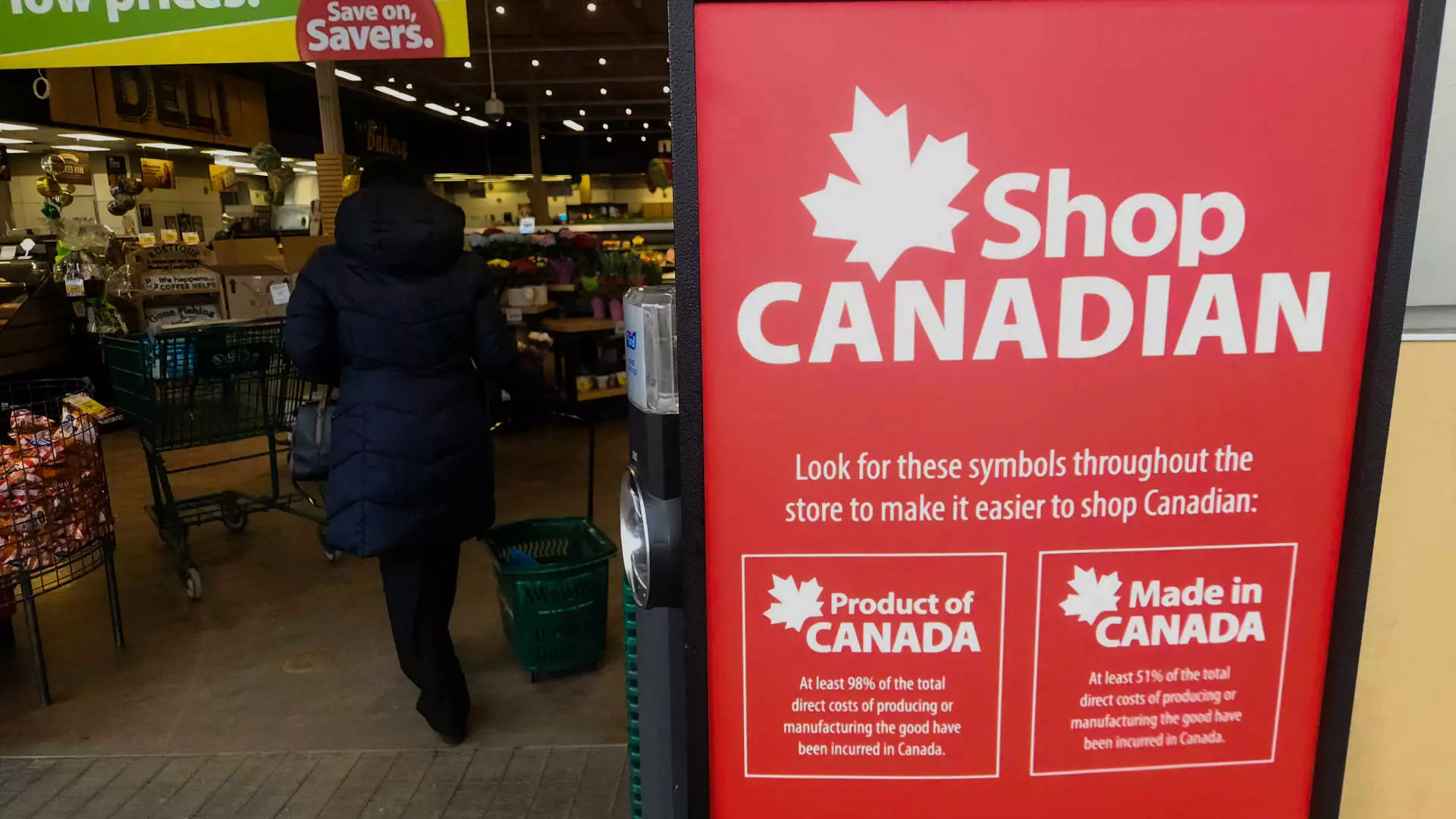In an era increasingly characterized by global trade tensions, small businesses just across the U.S.-Canada border are grappling with emotional and economic turmoil in ways that go beyond mere financial metrics. President Donald Trump has touted tariffs as a strategic method for revitalizing American manufacturing, but this sweeping protectionist agenda has eroded a trust that has been integral to both countries’ economies for decades. It’s not merely about numbers—today, a staggering $762.1 billion in trade flowed between the nations in 2024, with Canada relying heavily on the U.S. for over three-quarters of its exports. The ramifications of these tariffs represent a betrayal to many Canadians and signify a worrying pivot in international camaraderie.
Canada’s Response: A Cry Against Economic Isolation
Over the past few years, Canadians have felt the brunt of these tariffs, particularly the 10% on energy and 25% on other imports—moves initiated not by an act of war but by an administration’s desire to redefine power on a global scale. These tariffs have put a strain on businesses large and small, prompting a palpable sense of frustration among entrepreneurs. Retailers like Balzac’s Coffee Roasters have opted for a symbolic response, opting to rebrand their Americano coffee as “Canadiano” in a bid to rally national pride against perceived slights from the U.S. government. Such gestures speak to an emotional undercurrent more potent than economics—they reveal a nation’s disappointment and its quest for identity amidst rising tensions.
Small Businesses as the Unsung Victims
The emotional toll cannot be underestimated. Canadian business leaders are voicing a deep sense of betrayal in light of the tariffs, illustrated by testimonies that reveal the fragility of long-standing partnerships. Corinne Pohlmann, an advocate for small businesses, highlights the stark reality facing over 100,000 independents across Canada. When she states that the U.S. is not seen as a reliable trading partner anymore, it’s not just a statistic—it’s a profound shift in sentiment. These feelings extend beyond mere economics; they strike at the core of what it means to be partners on a global stage.
Just when one might expect a focused dialogue on trade, the reality is far more chaotic, with more than half of surveyed Canadian business owners expressing doubt regarding the U.S. as a trustworthy ally. In a world where partnerships drive success, such budding hostilities suggest a precarious future for cross-border collaboration.
Emotional Distress: The Overlooked Fallout
Pohlmann indicates that many CFIB members have sought guidance on contract renegotiations, highlighting a significant shift in the trust dynamics that underpin business relations. Unlike large corporations that may have the bandwidth to weather these storms, small businesses lack the resources to navigate the complexities wrought by tariffs. The emotional distress associated with these tensions extends beyond balance sheets—it reflects a crisis in identity, trust, and long-term vision.
The Ontario government, through entities like the Liquor Control Board, has resorted to halting purchases from American producers, a move echoed by Canadian consumers expressing newfound patriotism through selective shopping. This transformation into conscious consumerism represents a collective pushback—Canadians are demanding that their purchases mirror their geopolitical sentiments. Hence, we see products adorned with Maple Leaf seals or harmoniusly labeled “prepared in Canada” taking center stage in stores.
The Long-Term Outlook: Soft Power at Risk
The troubling part of this equation is the risk to what many experts term “soft power.” Former Secretary of State Antony Blinken warned that the erosion of trust extends beyond economic consequences; it jeopardizes the more subtle, yet equally potent, influence that the U.S. wields on the global stage. In moments of political and economic uncertainty, countries that once viewed America as an ally may begin to look elsewhere. The U.S. may find itself ceding ground not just to rivals but also to nations that foster trust and collaboration.
Interest in the U.S. as a trading partner may dwindle among Canadian firms, even if tariffs are withdrawn. The scars of lost contracts and diminished trust may permeate the fabric of future engagements. As Pohlmann notes, the fracture in the trading relationship may not repair itself easily.
In the tumultuous landscape of tariffs and trade, one thing remains clear: Canada and the United States stand at a crossroads, where decisions made today will echo throughout their business history. The implications of the current political climate extend far beyond monetary concerns; they reflect a broader struggle for the soul of international partnership. Ultimately, the voices of small business owners resonate with challenging truths and reveal a crucial perspective that demands a more thoughtful, empathetic, and united front in trade discussions.

